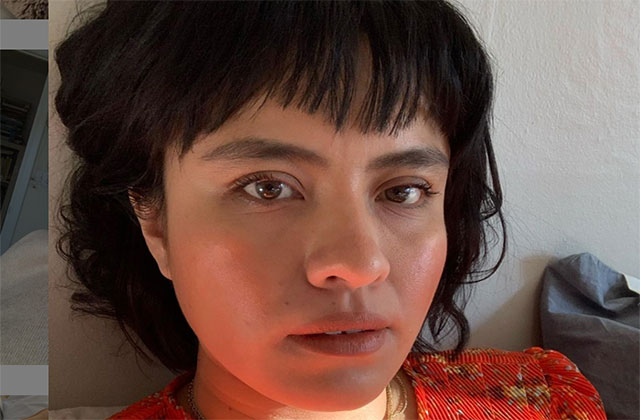When the National Book Foundation announces its 2020 National Book Awards winners on November 18 via livestream, author Karla Cornejo Villavicencio, the first undocumented writer named as a nonfiction finalist for her book “The Undocumented Americans,” will be one of those names called.
CNN, which recently featured an interview with Cornejo Villavicencio, reminded readers in an Instagram post that even though she has since become a legal permanent resident of New Haven, Connecticut, she has still made history.
"I felt extremely guilty because my people are dying," Cornejo Villavicencio, 31, told CNN of being named a finalist, as COVID-19 continues to devastate the undocumented Latinx community. "But I feel very honored, and I hope that I am the first, but not the last."
rn
“The Undocumented Americans” was inspired by Cornejo Villavicencio’s desire to document the stories of the undocumented across the country, as well as to explore her own as a DACA recipient, following the 2016 elections. According to The New York Times, the nonfiction work "chronicles her own immigration story and profiles undocumented immigrants across the United States: the trauma of those recruited to clean up ground zero; the loneliness of day laborers in Staten Island; the challenges of those facing the water crisis in Flint, Mich.; and the role of herbalists and healers in Miami."
In October, the NYT profiled Cornejo Villavicencio, shedding light on her personal story:
Cornejo Villavicencio was born in Ecuador in 1989 and brought to the United States to join her parents a few years later. She grew up in Brooklyn and Queens and now lives with her partner, Talya Zemach-Bersin, in New Haven, Conn., where she is finishing up a Ph.D. in American Studies at Yale University.
The NYT also pointed out that her book is also an important addition to a growing genre:
Cornejo Villavicencio’s is one of several books by undocumented or formerly undocumented writers, including Jose Antonio Vargas, Julissa Arce, Marcelo Hernandez Castillo, Dan-el Padilla Peralta and Javier Zamora, written in the last five years. Vargas, whose book, “Dear America: Notes of an Undocumented Citizen,” was published in 2018, called Cornejo Villavicencio’s book “a significant contribution to personal-essay literary journalism,” notable for its emphasis on migrants’ interior lives.
While these writers may have inspired her, Cornejo Villavicencio admitted that for the few books that accurately reflect this experience, there are still too many that do not. "I had read a lot of books that I felt did not do a good job of representing migrants in an interesting way. It was mostly bad writing. It relied a lot on caricatures and cliches," the Harvard graduate later told CNN. "I always thought I could do better, but I just never felt like I had a fire in my belly until the night of the election."
Read more snippets below from Cornejo Villavicencio’s CNN interview, where she discusses the power of immigrant stories and more:
On telling one’s own story:
Immigrant stories told by immigrants. I think that there is a great crop of writers who understand nuances and we understand complexities and we understand secrets and we have access that other people don’t have.
rnOn dedicating the book to Claudia Gomez Gonzalez, who was shot and killed by a Texas Border Patrol agent in 2018:
She wanted to come here and study and be a nurse. And I feel that she was killed in cold blood. And yet at the time that I heard about her death, I felt very guilty and I felt personally responsible. She came here because she wanted a better life, which is classically what Americans have been told this country is for, but they no longer accept it. They want people to be fleeing, like, an asteroid.
And I felt like I represented, you know, that life, which was education, ability, a different world. And it’s hard to explain, but I felt like I had betrayed her in some way because people like me had not been entirely open about the fact that we were being hunted here.
On side-stepping stereotypes to tell the whole truth:
I would have [had] to do what a lot of people do, which is just believe in the template that Hollywood and publishing give you that is "what Latino literature is supposed to sound like," and write in that template.
I’m sure that perfectly nice, smart, intelligent, provocative, good writers do write these dumb books because they’re writing for white readers. And I could have written one of those books if I chose to write for a White audience, but I didn’t.
I chose to write for children of immigrants. I chose to write for immigrants. I chose to write for people of color. And, you know, that’s why it’s a book that has base notes in it. It’s not a simple fragrance.
Read Cornejo Villavicencio’s full CNN interview here and tune into the National Book Award’s virtual ceremony on Wednesday, Nov. 18, here.
